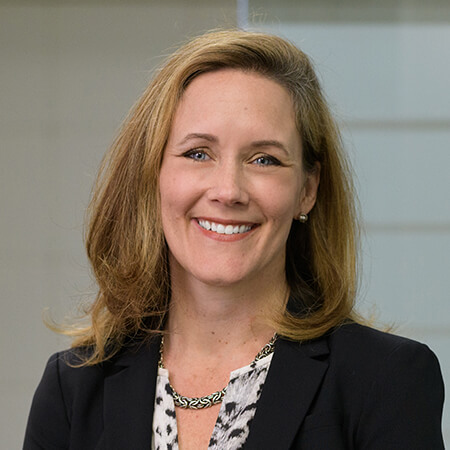Family governance is not a document you complete once and file away. It is a living system that grows and adapts just as the family

Do I Really Need a Trust to Avoid Probate?
July 14, 2022
If you have a 401(k), an IRA or a life insurance policy, you’re likely familiar with a beneficiary designation form and how it works. An individual or entity of your choosing can be named to receive your assets when you pass away. You even have the flexibility to allocate the percentage each should receive if you choose more than one recipient. This process avoids probate and is very straightforward if done correctly. A Transfer on Death (TOD) designation works in much the same way for taxable assets, providing a short or long-term solution for those without a trust. Some states, including California, even allow for a Transfer on Death Deed for real estate.
You might be wondering then why you’d even bother establishing a trust if your taxable accounts and home can be covered by a TOD designation and your retirement accounts can be covered by a beneficiary designation form. If you’ve done all that, you’re done. Right? You could be, but before you cross “avoid probate” off your to-do list, there are additional reasons to do a full estate plan and engage with an attorney for their services.
First, TOD accounts don’t cover any personal property such as your car or the contents of your home. Your wishes for who is to receive those assets when you die would need to be covered by executing a will. A will would also be necessary to name a guardian for minor children and to appoint an executor to cover final expenses and file your final tax return in the year after death. Additionally, if your assets go to your surviving spouse by way of a TOD designation, you’ve given them full control over those assets and where they go next. That could be just fine, but it’s important to understand that they could be spent down entirely after you’re gone or passed on to a new husband or wife. This could be especially unsettling if you have children and assumed their surviving parent would provide for them.
Importantly, TOD designations only come into play when you pass away. If you’re alive but incapacitated, you will need someone to step in to help manage your finances and your healthcare decisions. For individuals who’ve established a trust, that role on the financial front is filled by the successor trustee of a trust or an individual with power of attorney. For someone to step into the decision-making role when it comes to your health, you should consider establishing an advanced healthcare directive and durable power of attorney for healthcare. The advanced directive allows you to clearly state your healthcare wishes while you’re able to do so and a durable power of attorney for healthcare gives another individual the ability to execute those wishes on your behalf when you’re unable to do it for yourself.
If you’ve put off hiring an attorney to assist with a full estate plan, a Transfer on Death (TOD) designation could be the temporary solution you’ve been looking for to cover your taxable accounts. Be sure to also check the beneficiary designations for your retirement accounts and life insurance policies to make sure they’re up to date. And because life happens when you’re making plans, don’t put off doing a full estate plan for too long.
Sources: nolo.com, thebalance.com
Articles and Commentary
Information provided in written articles are for informational purposes only and should not be considered investment advice. There is a risk of loss from investments in securities, including the risk of loss of principal. The information contained herein reflects Sand Hill Global Advisors' (“SHGA”) views as of the date of publication. Such views are subject to change at any time without notice due to changes in market or economic conditions and may not necessarily come to pass. SHGA does not provide tax or legal advice. To the extent that any material herein concerns tax or legal matters, such information is not intended to be solely relied upon nor used for the purpose of making tax and/or legal decisions without first seeking independent advice from a tax and/or legal professional. SHGA has obtained the information provided herein from various third party sources believed to be reliable but such information is not guaranteed. Certain links in this site connect to other websites maintained by third parties over whom SHGA has no control. SHGA makes no representations as to the accuracy or any other aspect of information contained in other Web Sites. Any forward looking statements or forecasts are based on assumptions and actual results are expected to vary from any such statements or forecasts. No reliance should be placed on any such statements or forecasts when making any investment decision. SHGA is not responsible for the consequences of any decisions or actions taken as a result of information provided in this presentation and does not warrant or guarantee the accuracy or completeness of this information. No part of this material may be (i) copied, photocopied, or duplicated in any form, by any means, or (ii) redistributed without the prior written consent of SHGA.
Video Presentations
All video presentations discuss certain investment products and/or securities and are being provided for informational purposes only, and should not be considered, and is not, investment, financial planning, tax or legal advice; nor is it a recommendation to buy or sell any securities. Investing in securities involves varying degrees of risk, and there can be no assurance that any specific investment will be profitable or suitable for a particular client’s financial situation or risk tolerance. Past performance is not a guarantee of future returns. Individual performance results will vary. The opinions expressed in the video reflect Sand Hill Global Advisor’s (“SHGA”) or Brenda Vingiello’s (as applicable) views as of the date of the video. Such views are subject to change at any point without notice. Any comments, opinions, or recommendations made by any host or other guest not affiliated with SHGA in this video do not necessarily reflect the views of SHGA, and non-SHGA persons appearing in this video do not fall under the supervisory purview of SHGA. You should not treat any opinion expressed by SHGA or Ms. Vingiello as a specific inducement to make a particular investment or follow a particular strategy, but only as an expression of general opinion. Nothing presented herein is or is intended to constitute investment advice, and no investment decision should be made based solely on any information provided on this video. There is a risk of loss from an investment in securities, including the risk of loss of principal. Neither SHGA nor Ms. Vingiello guarantees any specific outcome or profit. Any forward-looking statements or forecasts contained in the video are based on assumptions and actual results may vary from any such statements or forecasts. SHGA or one of its employees may have a position in the securities discussed and may purchase or sell such securities from time to time. Some of the information in this video has been obtained from third party sources. While SHGA believes such third-party information is reliable, SHGA does not guarantee its accuracy, timeliness or completeness. SHGA encourages you to consult with a professional financial advisor prior to making any investment decision.
Other Posts By This Author
- – The Sun Didn’t Set After All
- – Initial Steps to Take for Widows
- – Understanding the Terms: All About That Basis
- – Home Sweet RV
Related Posts







